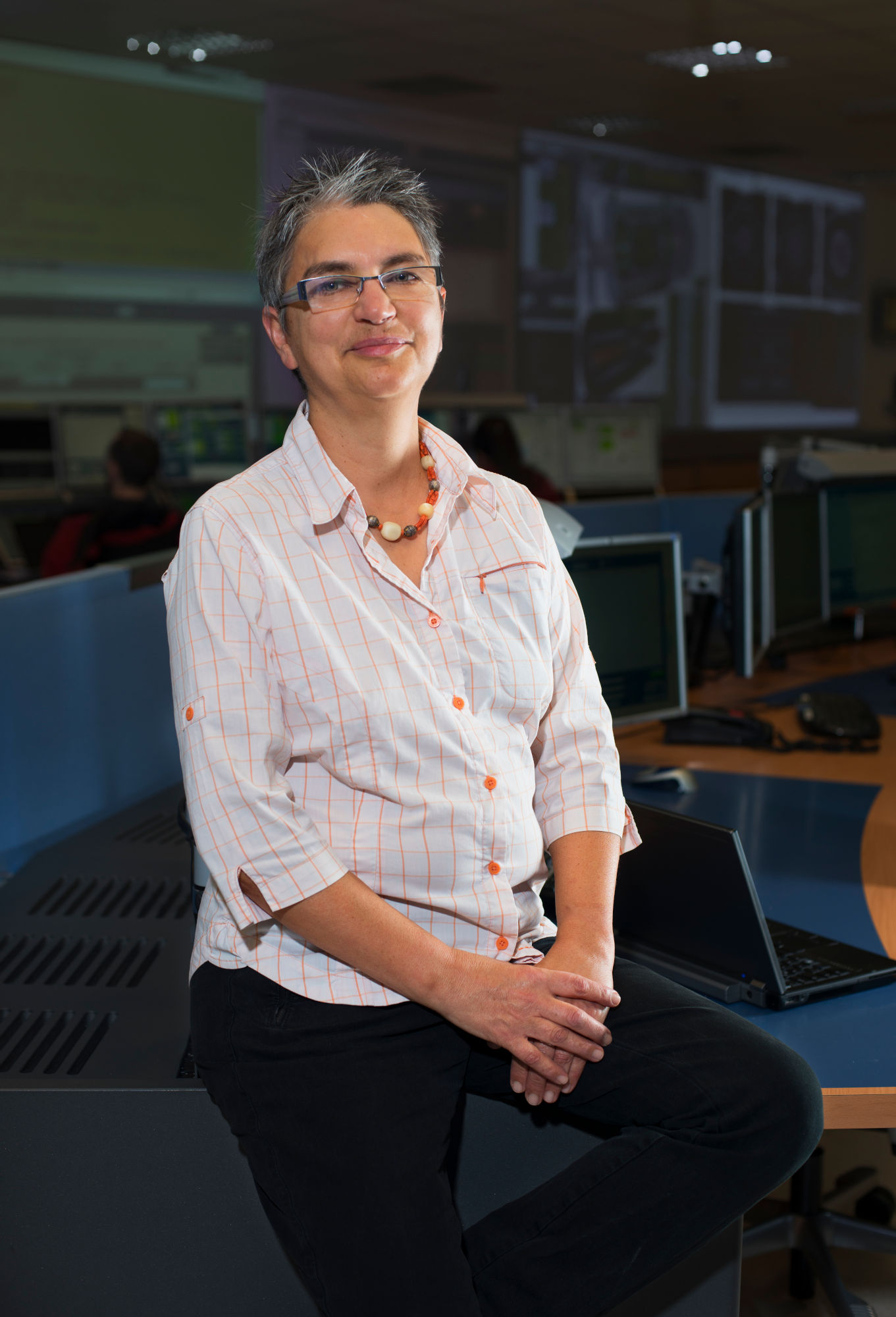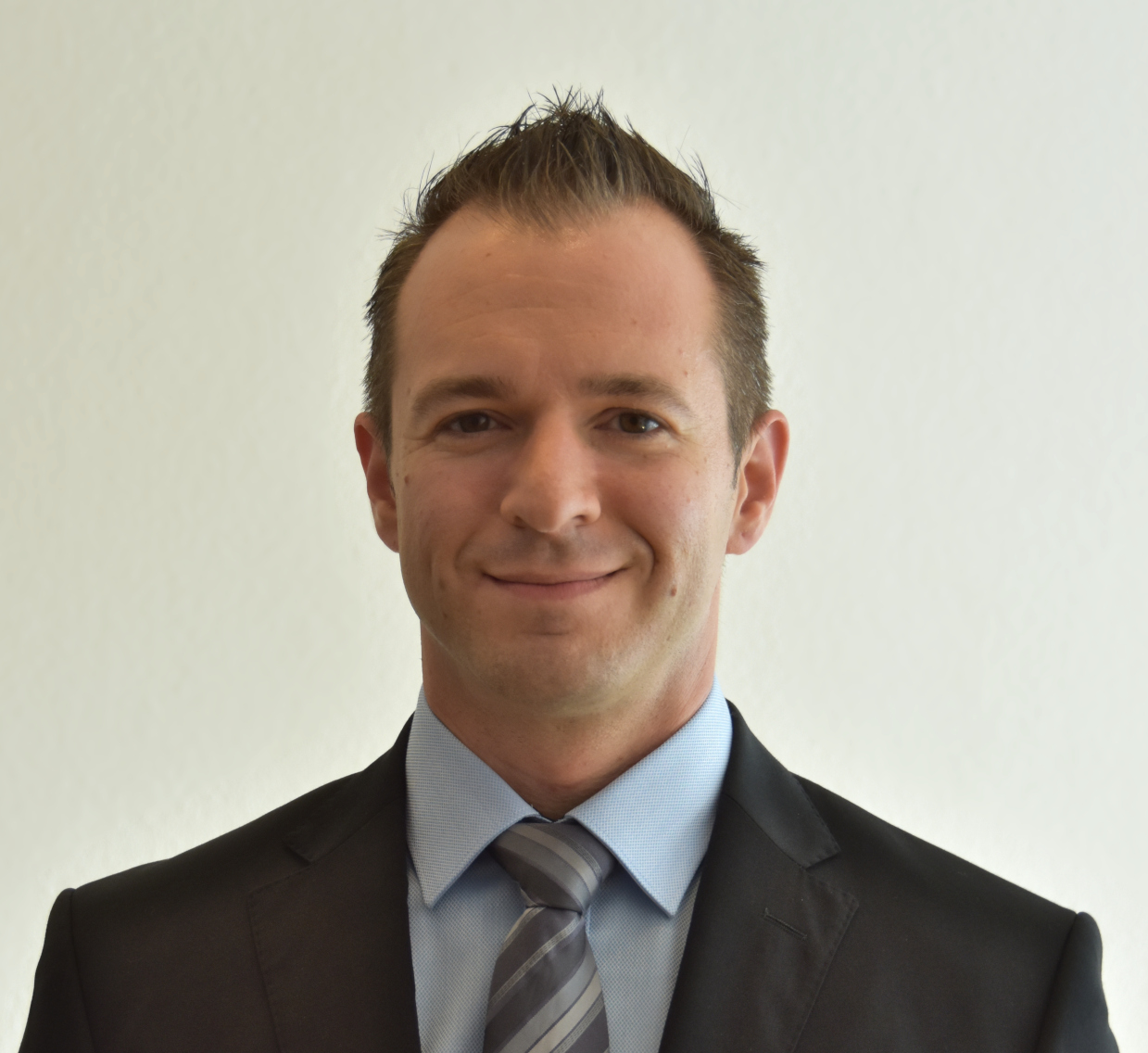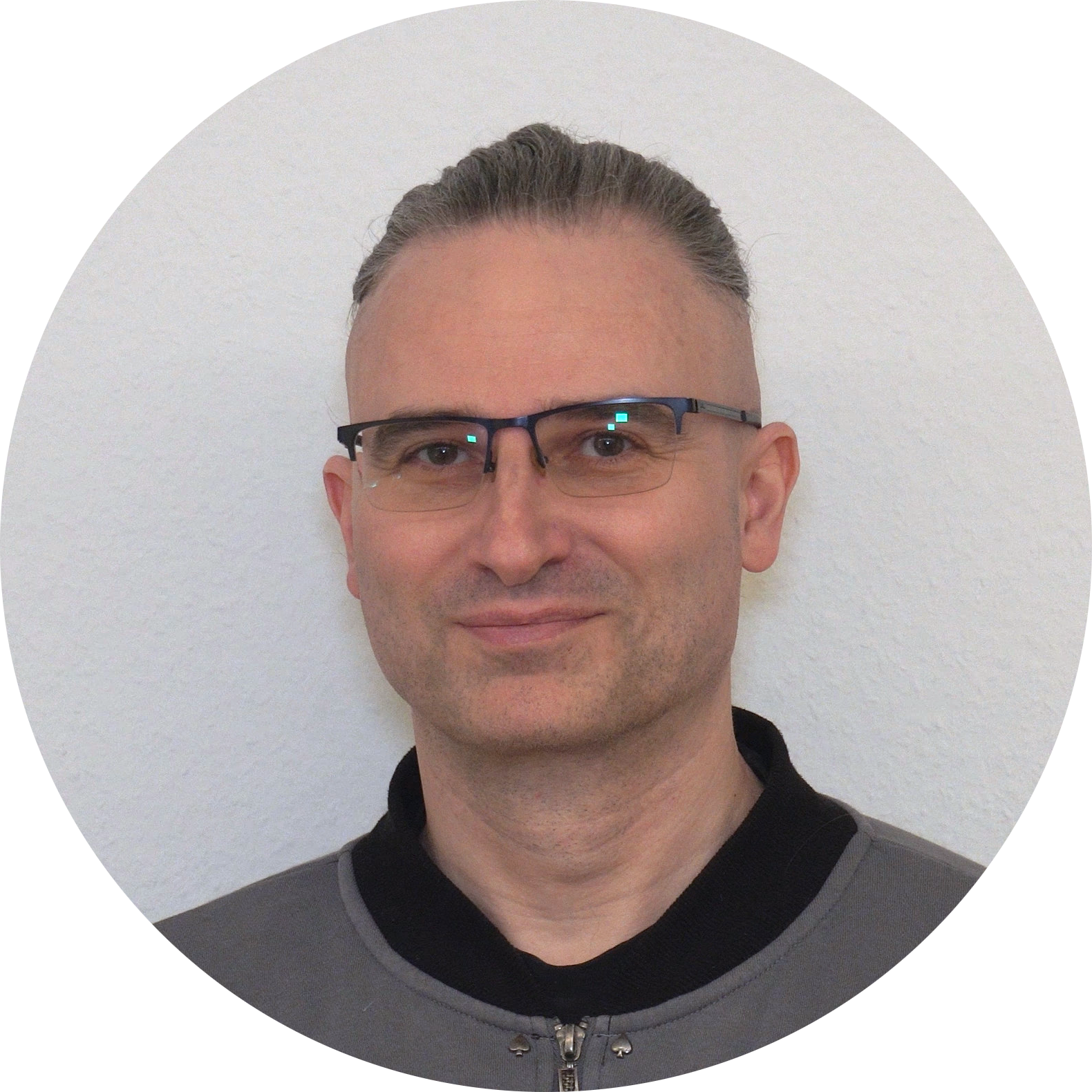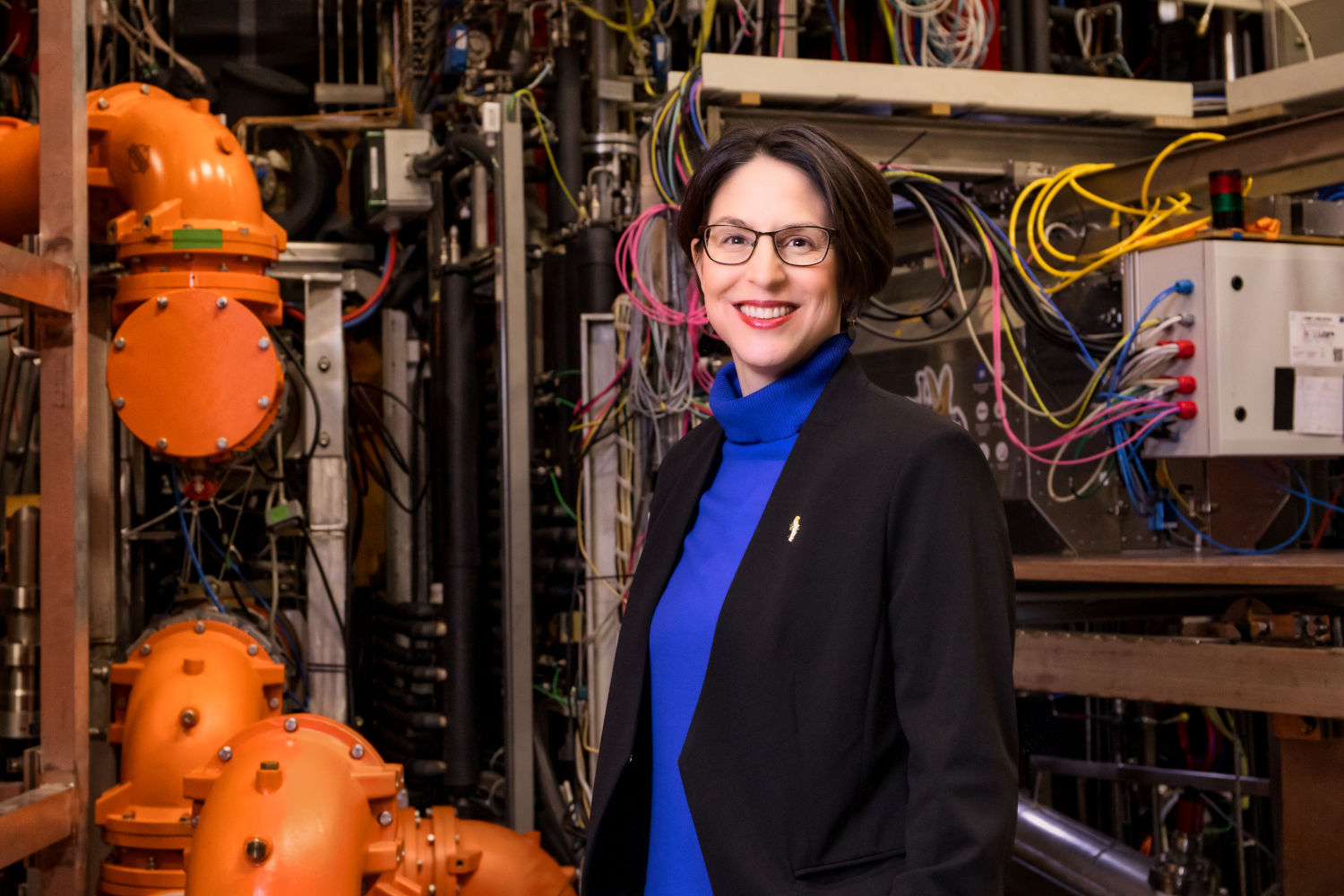Prof. Dr. Hartmut Zohm

Prof. Hartmut Zohm’s main fields of interest are the magnetohydrodynamic (MHD) stability of fusion plasmas and their heating by Electron Cyclotron Resonance Heating (ECRH). By combining these two fields, he pioneered the active stabilisation of neoclassical magnetic islands, which set a major performance limit to the tokamak, by ECRH. His present field is the study of tokamak physics on the ASDEX Upgrade tokamak which is operated by his department. He is also involved in the European studies for a demonstration fusion power plant (DEMO), where he leads the Plasma System Division in EUROfusion.
Prof. Zohm is a member of the Programme Advisory Committees of KSTAR (Daejon, Korea) and EAST (ASIPP Hefei, China), the EUROFusion General Assembly as well as chair of the Programme Advisory Committee of the Chinese Burning plasma Experimental Superconducting Tokamak (BEST) and the DIII-D tokamak (San Diego, USA). He is also a member of the board of editors of the ‘Journal of Plasma Physics’ journal.
Dr. Pauline Gagnon
Pauline Gagnon was born in Chicoutimi in Quebec, Canada in 1955. As a young kid, she dreamt of understanding what were the fundamental constituents of matter. After teaching physics for a few years in local colleges, Pauline moved to California in 1985. She first studied at San Francisco State University then completed a PhD in particle physics at University of California in Santa Cruz. After that, Pauline started my research activities at CERN, the European Laboratory for Particle Physics located near Geneva, where she worked as a Senior Research Scientist with Indiana University. Pauline participated to the discovery of the Higgs boson in 2012 and looked for dark matter within the ATLAS experiment.
From 2011-2014, Pauline joined the CERN Communication group, writing blogs and answering questions from numerous media worldwide. Explaining particle physics in simple and accessible terms became her trademark. In 2014, she wrote a popular science book called “Who cares about particle physics: Making sense of the Higgs boson, the Large Hadron Collider and CERN”, which is also available in seven other languages. Pauline's hopes that her book will allow her to reach large audiences since particle physics is too much fun to leave it only to physicists!
Since retiring in 2014, Pauline has given about one hundred eighty presentations to various audiences in fifteen countries, talking about physics, diversity issues and Mileva Marić Einstein. She is currently writing a screenplay for a mini-series on Mileva Marić Einstein and other women in science.

Dr. Daniel Told
Daniel Told completed his Physics diploma at the University of Ulm in 2008 and earned his PhD from the Max-Planck-Institute for Plasma Physics (IPP) in 2012. Currently, Dr. Told is a Staff Scientist and PhD Study Advisor at IPP. He leads a European-level project under the E-TASC TSVV initiative, funded by Eurofusion, collaborating with researchers from multiple countries.
Before his current position, Dr. Told gained valuable experience during his postdoctoral tenure at UCLA in the Department of Physics & Astronomy from 2015 to 2016. His research focuses on developing fully kinetic and hybrid kinetic simulation techniques for understanding plasmas in both natural and laboratory settings, with particular emphasis on fusion and space sciences. In 2016, he was awarded a grant to start a Helmholtz Young Investigator Group at IPP, funding a research group for five years.
Dr. Carsten Lechte
Carsten Lechte was born in Ludwigshafen, Germany, on February 9, 1973.
He received his Diplom and Ph.D. degrees in physics in 1999 and 2003, respectively, from the Christian-Albrechts-Universität zu Kiel in Germany.
He was with the HSX Plasma Laboratory in Madison, Wisconsin from 2003 to 2006 working on drift wave turbulence. He is now head of the microwave technology group at the Institute of Interfacial Process Engineering and Plasma Technology, Stuttgart, Germany. His research interest is the simulation of wave propagation in plasmas and millimeter wave transmission systems for fusion plasma heating and diagnostics, especially Doppler reflectometry. His collaborations include ITER, Wendelstein 7-X, ASDEX Upgrade, and MAST Upgrade.
Dr. Josefine Proll
Josefine Proll is an Associate Professor in the Departmen t of Applied Physics at Eindhoven University of Technology (TU/e). She obtained her BSc in Physics from the Julius-Maximilians-Universität Würzburg, Germany. She then obtained a MSc in Physics from Imperial College London, working at the British fusion lab CCFE near Oxford. Following this, she obtained her PhD at the Max Planck Institute for Plasma Physics in Greifswald, Germany, currently home to the Wendelstein 7-X fusion experiment. She was a postdoctoral fellow within the Max-Planck/Princeton Center for Plasma Physics from 2014 to 2015 and working under a Helmholtz PostDoc Grant from 2015 to 2016, after which she started her position in Eindhoven. In her work, Josefine investigates turbulent transport in the plasma core, and investigates how the shape of the confining magnetic field influences the severity of the turbulent transport. For this she collaborates closely with experimentalists and theoreticians from the Max Planck Institute for Plasma Physics, Germany, the Princeton Plasma Physics Laboratory, Princeton, USA, the National Institute for Fusion Science, Toki, Japan and the University of Wisconsin, Madison, USA.
t of Applied Physics at Eindhoven University of Technology (TU/e). She obtained her BSc in Physics from the Julius-Maximilians-Universität Würzburg, Germany. She then obtained a MSc in Physics from Imperial College London, working at the British fusion lab CCFE near Oxford. Following this, she obtained her PhD at the Max Planck Institute for Plasma Physics in Greifswald, Germany, currently home to the Wendelstein 7-X fusion experiment. She was a postdoctoral fellow within the Max-Planck/Princeton Center for Plasma Physics from 2014 to 2015 and working under a Helmholtz PostDoc Grant from 2015 to 2016, after which she started her position in Eindhoven. In her work, Josefine investigates turbulent transport in the plasma core, and investigates how the shape of the confining magnetic field influences the severity of the turbulent transport. For this she collaborates closely with experimentalists and theoreticians from the Max Planck Institute for Plasma Physics, Germany, the Princeton Plasma Physics Laboratory, Princeton, USA, the National Institute for Fusion Science, Toki, Japan and the University of Wisconsin, Madison, USA.
Dr. Rachael M. McDermott
Rachael McDermott studied physics at the Saint Louis University, where she graduated summa cum laude  with a major in physics and a minor in mathematics in 2003. She then proceeded to the Massachusetts Institute of Technology, Cambridge, MA, where she did her Ph.D. about “Edge Radial Electric Field Studies Via Charge Exchange, Recombination Spectroscopy on the Alcator C-Mod Tokamak”. After a first post-doctoral phase at the Max Planck Institute for Plasma Physics in Garching, Germany, where she worked on the ASDEX Upgrade tokamak, Rachael was appointed Leader of a Helmholtz Young Investigator Group in 2013. From 2022 – 2023, she was leader of the active spectroscopy group at the Max Planck Institute. Since 2023, Rachael is a director of the Physics of the Plasma Edge department at the Max Planck Institute.
with a major in physics and a minor in mathematics in 2003. She then proceeded to the Massachusetts Institute of Technology, Cambridge, MA, where she did her Ph.D. about “Edge Radial Electric Field Studies Via Charge Exchange, Recombination Spectroscopy on the Alcator C-Mod Tokamak”. After a first post-doctoral phase at the Max Planck Institute for Plasma Physics in Garching, Germany, where she worked on the ASDEX Upgrade tokamak, Rachael was appointed Leader of a Helmholtz Young Investigator Group in 2013. From 2022 – 2023, she was leader of the active spectroscopy group at the Max Planck Institute. Since 2023, Rachael is a director of the Physics of the Plasma Edge department at the Max Planck Institute.
Rachael McDermott is involved in numerous fusion research activities around the world, among them are memberships in the UKAEA Program Advisory Committee, being Chair of the the NSTX-U Program Advisory Committee as well as Chair of the International Tokamak Physics Activity Transport and Confinement Topical Group, and Former-Chair of the European Transport Task Force.
